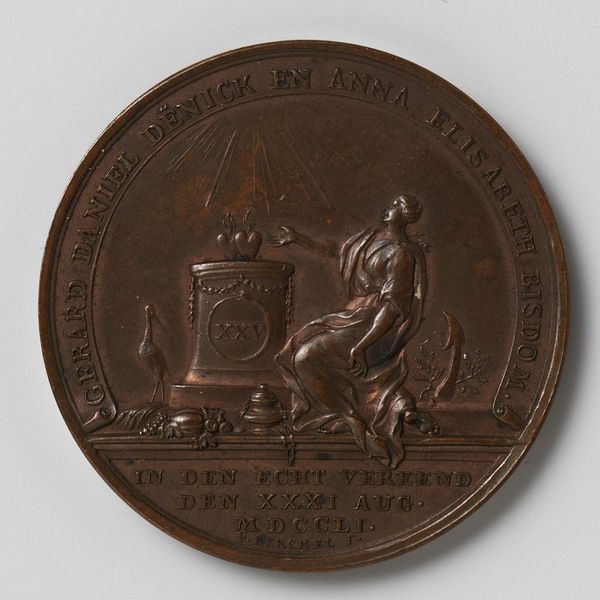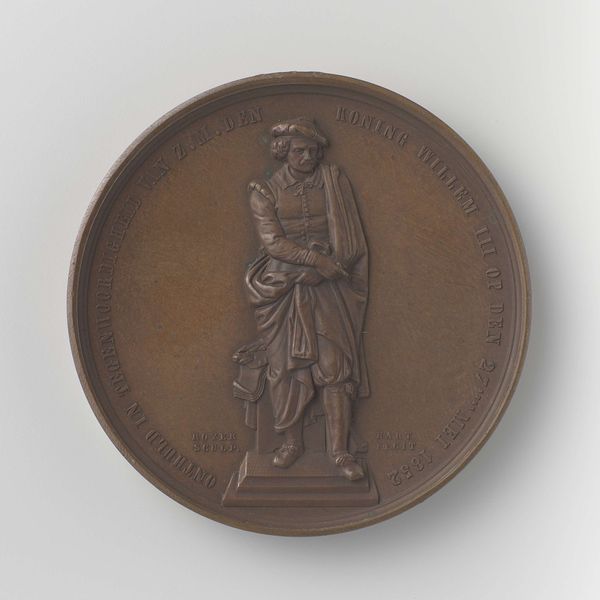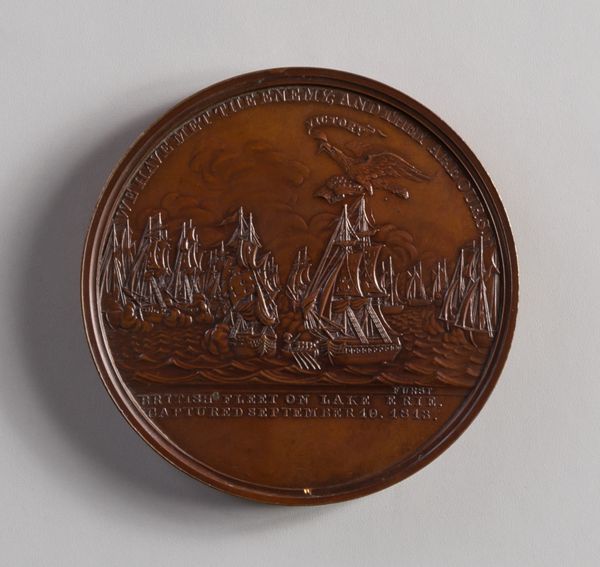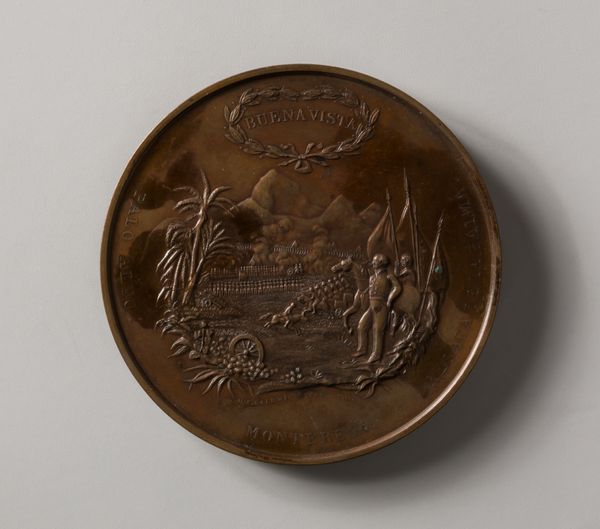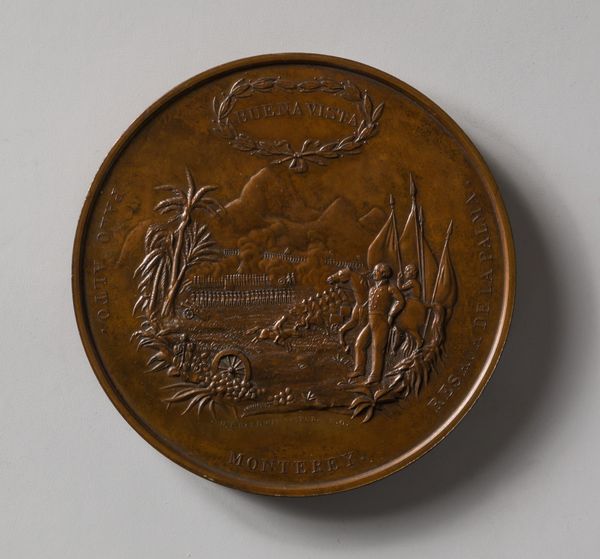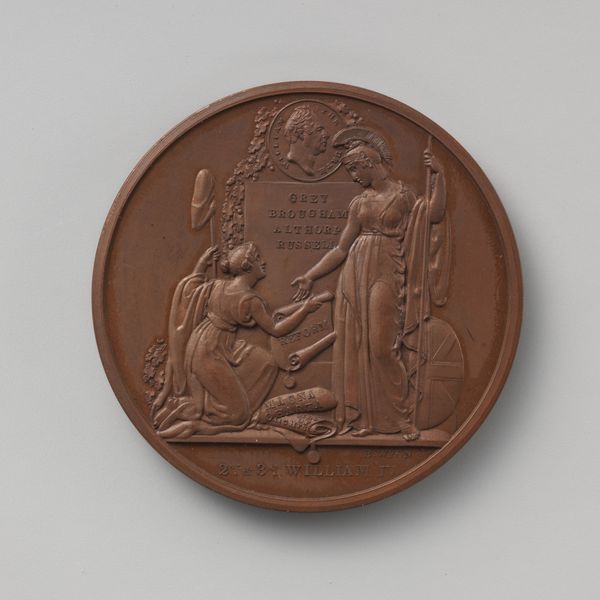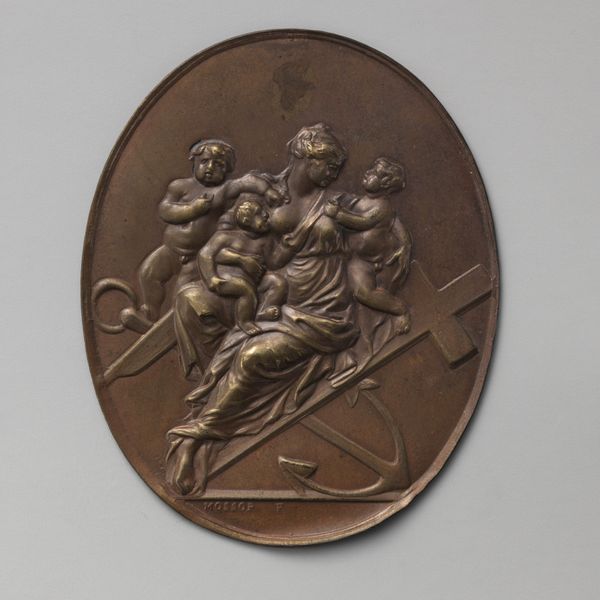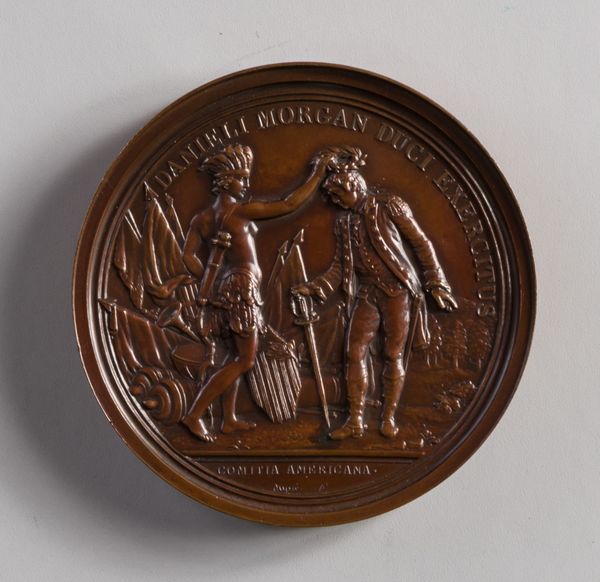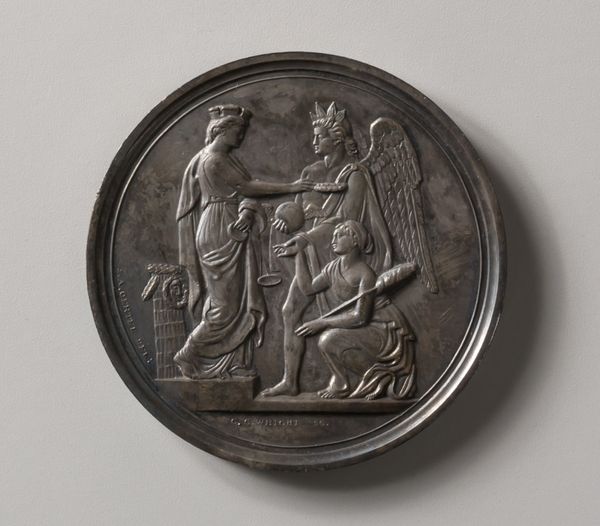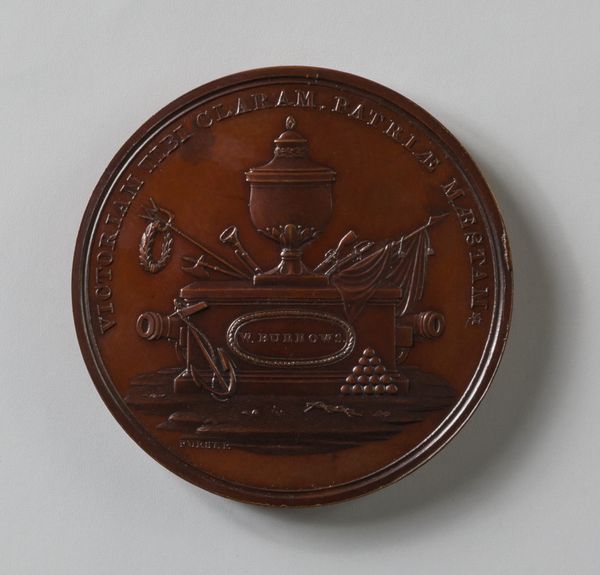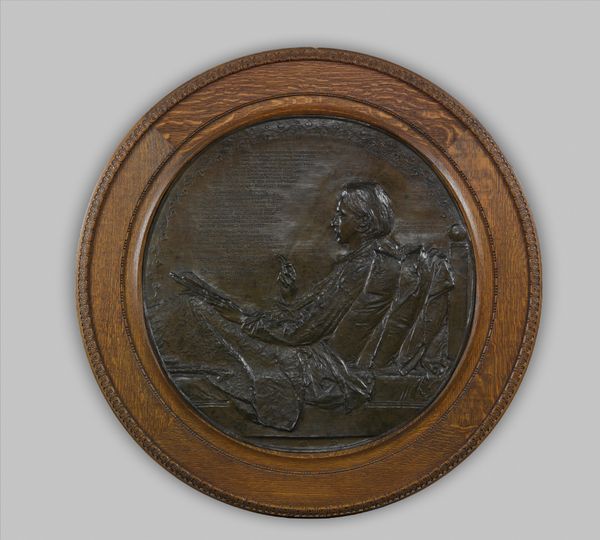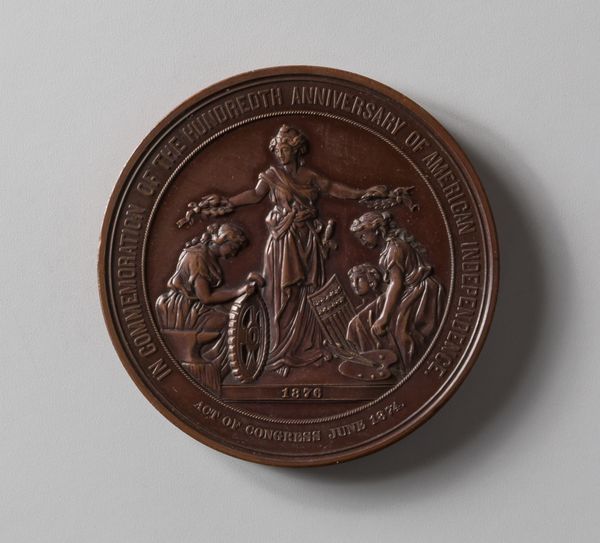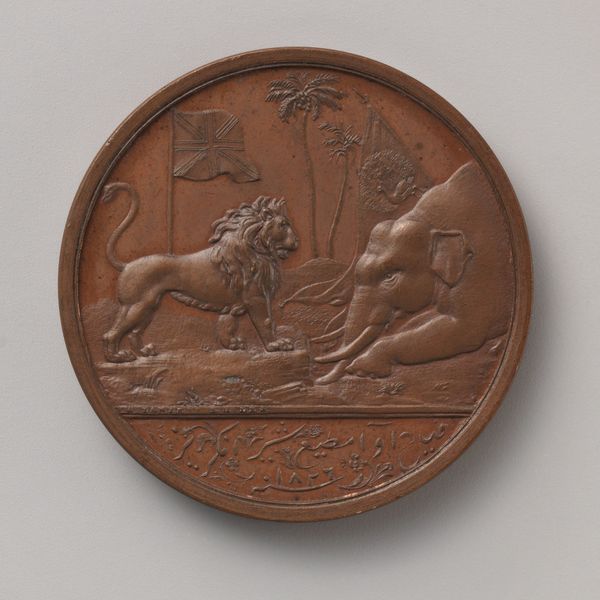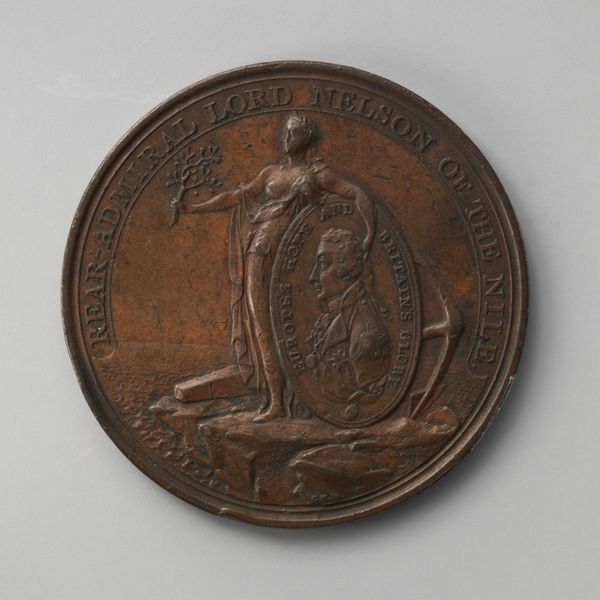
Dimensions: Diam. 2 5/8 in. (6.7 cm)
Copyright: Public Domain
Editor: So this is "The 'Shipwreck Medal'," made between 1845 and 1857 by Salathiel Ellis. It's a bronze relief, currently housed at the Met. I'm immediately struck by the stark contrast between the chaotic scene of the shipwreck and the almost idealized figures of the survivors. How do you read that tension? Curator: It's a fascinating dichotomy, isn’t it? Considering the Romanticism period during which this medal was crafted, it's easy to read the drama of the shipwreck itself, with a lighthouse standing off to the left, and a distressed sailing ship listing at a precarious angle to the right, as an allegory for man's struggle against nature. The seemingly classical depiction of the survivors suggests the perceived innate virtue of man that prevails despite tragedy. Editor: That's interesting, that sense of "virtue". But is it possible the "virtue" we read is actually about idealizing whiteness in a way that erases the realities of who historically survived such disasters? Curator: Absolutely. Who is centered, whose story is deemed worth telling, always comes down to deeply entrenched cultural narratives and choices about what is valued as culturally or historically significant. Can we really discuss representations of virtue and heroism without unpacking the historical legacy of colonialism and enslavement embedded within it? Editor: I hadn't considered it from that angle, focusing on the human cost rather than an idealized image. Curator: Precisely. Romanticism often glossed over complex sociopolitical realities to tell a simpler story about individualism. It is important for us to acknowledge that we cannot remove images and historical depictions of persons from the era in which they were created. Looking through a lens that critiques, confronts, and seeks to dismantle, can shed light on perspectives, issues, and ideas. Editor: Thank you! Thinking about the cultural narratives and power dynamics definitely provides a more grounded reading of the medal. Curator: Indeed. By acknowledging historical context, we can unpack its complex narratives, giving rise to contemporary understanding.
Comments
No comments
Be the first to comment and join the conversation on the ultimate creative platform.
